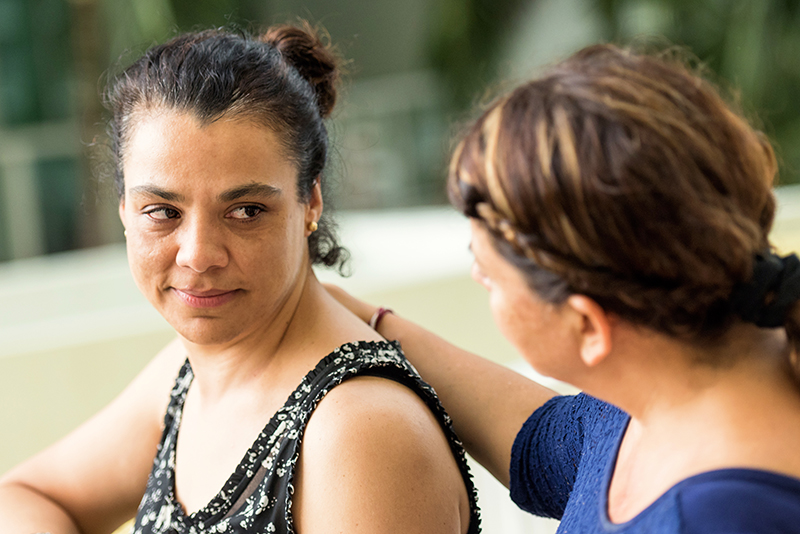Remember learning the order of the colors of the rainbow in elementary school? Many of us were introduced to Roy G. Biv to master this feat – one of many mnemonics we learn that, surprisingly, stay with us for a lifetime. As we grow older, some degree of memory impairment is to be expected; and of course it’s even more pronounced when Alzheimer’s disease or another type of dementia is a factor. Researchers are constantly striving to find effective ways to improve senior memory and cognitive functioning, and have discovered some interesting findings on “old school” strategies such as mnemonics.
Here’s what they’ve recently discovered:
Mnemonics
Mnemonics provides a connection to a memory through a phrase, abbreviation, song, etc. This type of training showed remarkable results in increasing activity in areas of the brain that are affected by Alzheimer’s, leading to improved retention of information.
There are limitless mnemonic strategies that are highly effective in helping to improve senior memory. For instance, try mnemonic keywords. These are a fun and creative way to memorize words in another language. It involves choosing a word that’s similar to the new word you want to learn, and visualizing an image that brings the two words together. For instance, if you’re trying to remember that chapeau is French for the word “hat,” you could picture Charlie Chaplin and his infamous black hat. The “Chap” part of his name can trigger the first letters in chapeau, and the memory will stick.
Spaced Retrieval Training
This strategy involves gradually increasing the amount of time between memory tests, and was shown to also be highly effective for those with dementia. Compared to mnemonics, however, there was actually a reduction in brain activity, leading researchers to determine that the information was being processed more efficiently.
Spaced retrieval training is highly useful for enhancing independence and lowering anxiety for those with cognitive challenges. Choose a desired activity or event for the person to remember, such as a lunch date with a friend on Friday. First ask the person a question to determine if the memory is already in place. If not, remind them that they are having lunch with Sally on Friday. Wait 15 seconds, and ask the person the question again. If the memory is in place now, double the time to 30 seconds, and ask again, continuing to double the time and asking again. If the person, however, does not remember after 15 seconds, keep repeating the process every 15 seconds several more times before determining that this is not an effective technique, at least not for this particular event or activity.
Both strategies are simple, drug-free methods to incorporate into the treatment plan for someone in the early stages of dementia, or for anyone who is seeking ways to improve memory.
Let Amy’s Helping Hands, the top provider of home care in Windsor, Ontario and the surrounding areas, provide additional resources and support for someone you love with dementia. Our creative approaches to care help maximize a senior’s cognitive functioning, independence, and quality of life. Contact us at 519-915-4370 for a free in-home assessment to find out more.















